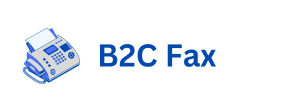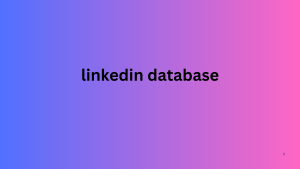In today’s marketing landscape, understanding your audience is the cornerstone of success. Consumers expect businesses to deliver personalized experiences and relevant content, making it essential for marketers to know their preferences, behaviors, and needs understand your marketing audience. Special databases are the key to achieving this deep understanding.
By storing, organizing, and analyzing customer data, special databases provide actionable insights that can transform your marketing campaigns. This article explores how these databases enhance audience understanding, leading to better engagement and increased ROI.
The Importance of Understanding Your Audience
1. Creating Relevant Campaigns
Knowing your audience ensures that your campaigns resonate with their needs and interests linkedin database, understand your marketing audience increasing engagement and conversions.
2. Improving Customer Retention
When customers feel understood, they are more likely to stay loyal to your brand. Special databases enable personalized interactions that foster long-term relationships.
3. Maximizing Marketing Efficiency
Understanding your audience helps focus efforts on high-potential leads understand your marketing audience, reducing wasted resources and increasing campaign effectiveness.
How Special Databases Enhance Audience Understanding
1. Centralizing Customer Data
Special databases consolidate all customer information into one place, including:
- Demographics: Age, gender, location, income level.
- Behavioral Data: Purchase history, browsing patterns, engagement levels.
- Psychographics: Interests, values, and lifestyle preferences.
Example: A retail business can use its database to identify which products are most popular among different age groups, tailoring marketing messages accordingly.
2. Segmenting Audiences
Audience segmentation is critical for creating targeted campaigns. Special databases allow you to group customers based on shared characteristics, such as:
- Buying frequency (e.g., regular vs. occasional buyers).
- Product preferences (e.g., tech enthusiasts vs. budget shoppers).
- Engagement levels (e.g., active vs. dormant customers).
Example: An online bookstore can segment readers by genre preference understand your marketing audience, sending separate newsletters to fans of fiction, non-fiction, and self-help books.
3. Analyzing Customer Behavior
Behavioral insights from special databases help businesses understand how customers interact with their brand. This includes:
- Tracking website visits and time spent on pages.
- Monitoring cart abandonment rates.
- Identifying peak shopping times.
Example: An e-commerce store can analyze why customers abandon their carts and implement solutions understand your marketing audience the advantages of special databases in business marketing strategies, such as targeted email reminders or offering free shipping.
4. Enabling Personalization
Personalization is a powerful way to connect with your audience. Special databases help businesses deliver tailored experiences by:
- Recommending products based on past purchases.
- Sending personalized offers or birthday discounts.
- Displaying dynamic website content aligned with user preferences.
Example: A travel agency might use its database to recommend tropical vacation packages to a customer who previously booked beach destinations.
Benefits of Using Special Databases for Audience Insights
1. Higher Engagement Rates
Targeted campaigns built on audience insights are more likely to capture attention and drive action.
2. Improved Customer Satisfaction
Understanding customer needs allows you to deliver value understand your marketing audience aero leads, enhancing their experience and satisfaction with your brand.
3. Increased Conversion Rates
Tailored messages and offers resonate more with customers understand your marketing audience, leading to higher conversion rates and increased revenue.
Best Practices for Leveraging Special Databases
1. Prioritize Data Accuracy
Keep your database up-to-date by regularly cleaning and validating customer information. Inaccurate data can lead to ineffective campaigns.
2. Protect Customer Privacy
Adhere to data protection regulations like GDPR and CCPA to build trust with your audience. Secure your database with encryption and limit access to authorized personnel.
3. Continuously Analyze and Adapt
Customer preferences change over time. Regularly review your database to identify trends and adapt your marketing strategies accordingly.
Real-Life Applications of Special Databases
1. Boosting Email Campaigns
A fashion retailer segmented its database by gender and purchase history. Personalized email campaigns offering discounts on preferred items increased open rates by 45%.
2. Enhancing Ad Targeting
A fitness brand used its database to create social media ads targeting yoga enthusiasts understand your marketing audience. This strategy reduced ad spend while increasing click-through rates by 30%.
3. Improving Customer Retention
A subscription box service analyzed its database to identify customers at risk of canceling. Personalized retention offers reduced churn rates by 20%.


